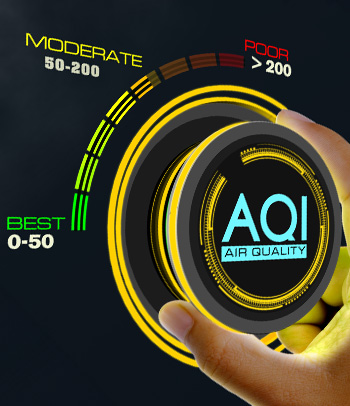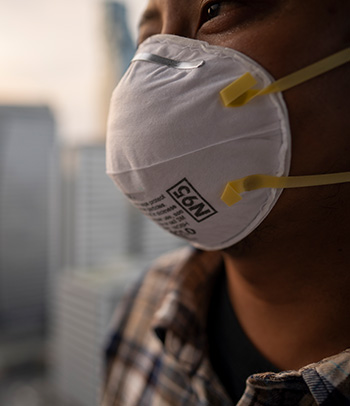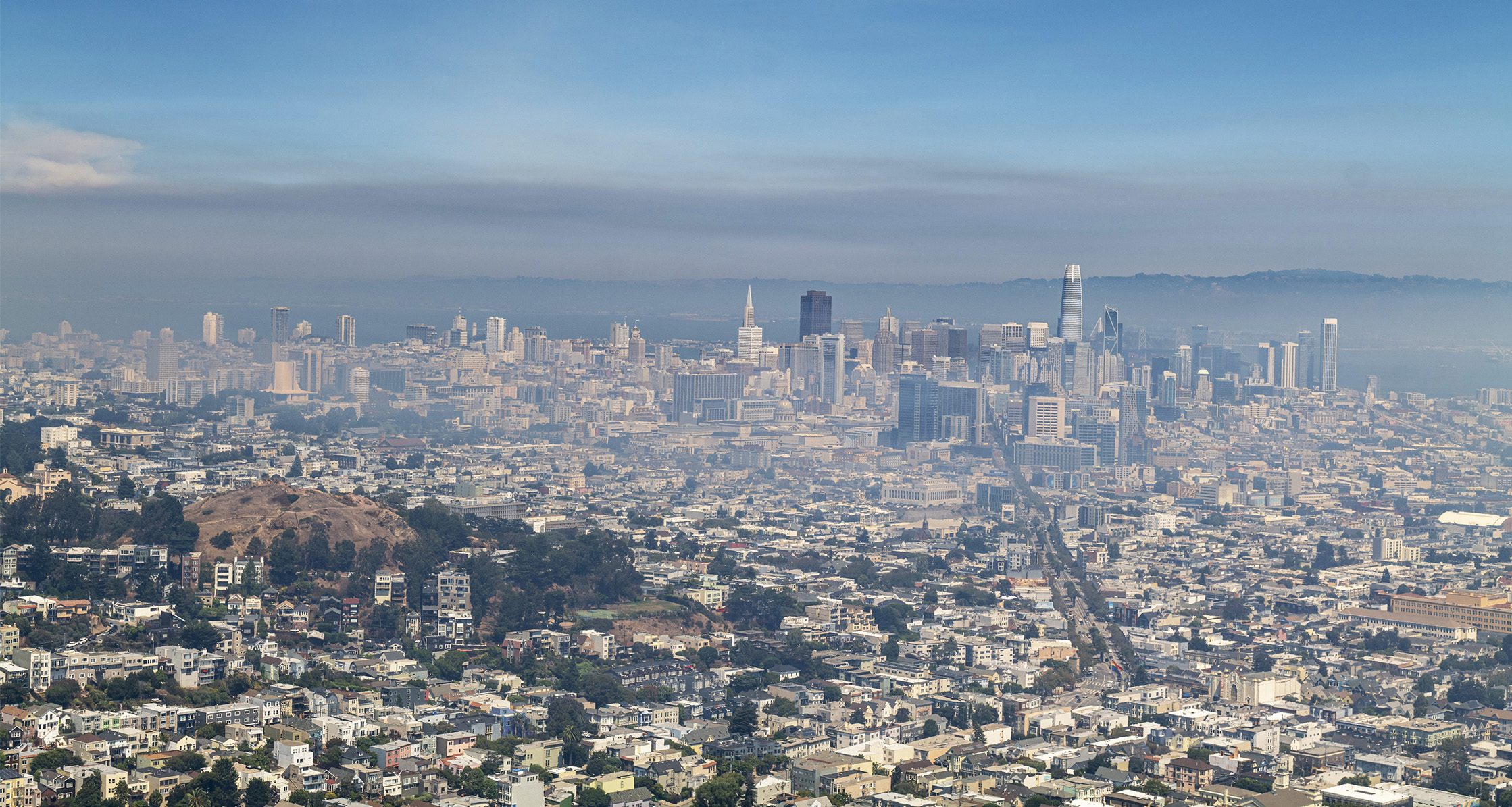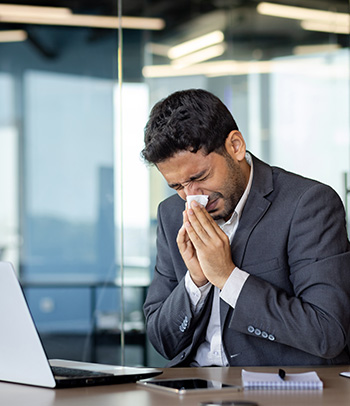Unhealthy air quality and high pollution levels can be worrisome, but you can protect yourself by understanding more about air quality, its impact on your health and what steps you can take to stay safe.
With several large wildfires making headlines in recent years, there’s been a lot of talk about air quality. Now, even areas of the country where wildfires aren’t common – like parts of the Midwest and the East Coast – have seen smoky and hazy skies, increased air pollution levels, canceled outdoor events, and more.
Many of us wonder how poor air quality can affect our health and what we’re supposed to do about it. Unhealthy air quality and high pollution levels can be worrisome, but you can protect yourself by understanding more about air quality, its impact on your health and what steps you can take to stay safe.
What Is the Air Quality Index?
The U.S. Air Quality Index (AQI) is a rating system administered by the U.S. Environmental Protection Agency that shows the amount of pollution in the air on a scale from 0 to 500. The rating measures the density of five major pollutants in the air – like ground-level ozone and particulate matter – and then calculates a number that reflects how healthy (or unhealthy) the air is to breathe that day.
The AQI uses six color-coded categories from green to maroon to provide details about the air quality in your area, which groups of people may be affected by it and what steps you can take to reduce your exposure to air pollution. Here are some basic points about the AQI:
- An AQI under 50 is considered good air quality and safe for everyone to spend time outdoors without a risk to their health.
- As the number increases, so does the risk to your health. A higher number equals higher pollution levels.
- An AQI over 300 is considered hazardous for everyone.
- In between 50 and 300, the numbers depend somewhat on whether or not you’re in a sensitive group. For example, when AQI levels reach 100, air quality is considered unhealthy for certain vulnerable groups.
Am I At Risk?
Poor air quality can affect anyone’s health, but the American Lung Association shares that certain groups are considered more at risk when air pollution levels are higher, including:
- People with respiratory or heart conditions, such as asthma, chronic obstructive pulmonary disorder (COPD), emphysema, heart disease, etc.
- Children under 18
- Elderly people
- People with diabetes
- People who are pregnant
- People who are outdoors for long periods of time, including avid exercisers, outdoor workers, etc.
- Veterans – According to the American Lung Association, Veterans have an increased risk for developing lung disease based on factors such as tobacco use and workplace or environmental exposures (like burn pits), so air quality can be a significant concern.
What Effects Can Poor Air Quality Have on My Health?
The effects of air pollution can be mild – like a small amount of eye or throat irritation, but can also be serious, including respiratory and heart issues like shortness of breath or lung inflammation. Ground-level ozone and airborne particles are the two pollutants that pose the greatest risk to our health. According to AirNow.gov, these health risks and effects include:
- Coughing and phlegm
- A burning sensation in your airways
- Reduced lung function, including feelings of chest tightness, wheezing or shortness of breath
- Aggravated asthma and triggered asthma attacks
- Irritation of your eyes, nose, throat and sinuses
- Headache
- Tiredness
- Fast heartbeat
- Long-term exposure to air pollution can trigger serious health issues such as heart attacks, stroke and irregular heart rhythms, especially in people who are already at risk for these conditions
If you’re experiencing prolonged symptoms like difficulty breathing or excessive coughing after you’ve been exposed to unhealthy air, reach out to your health care provider. You may have an underlying condition that needs your attention. Your health care provider can give you a lung function test that can help identify early warning signs of lung disease.
What Steps Can I Take to Protect Myself from Poor Air Quality?
We can all take basic precautions to minimize our exposure to unhealthy air. Follow these simple tips to keep yourself safe and healthy when air pollution is high.
- Monitor the air quality in your area. You can stay up to date on the air quality in your area with real-time information and forecasts from AirNow.gov. Type in your location for immediate air quality data to plan your outdoor activities and ensure you stay safe. You can also sign up for air quality notifications to make it even easier to track. This information is often accessible on television, radio and in newspapers as well.
- Stay inside. The American Lung Association suggests reducing the time you spend outdoors to under 30 minutes when the AQI is high and lowering the intensity of what you’re doing outside. Health effects are greater the longer you’re outside and the more strenuous your activity is.
- Run your air conditioning. This applies to when you’re at home and when you’re in the car. You’ve got filters in your air conditioners that will block out many particulates. Set your air conditioner to recirculate so it’s not pulling in contaminated air from outside.
- Wear a mask. If you have to be outside when the air quality is poor, wear a high-quality and well-fitting mask such as an N95 or KN95 to help keep yourself safe. A cloth mask like a bandana will not filter out particle pollution as effectively as masks with filters.
- Make sure you have a good supply of any medications you need. If you have a respiratory condition that can be made worse by unhealthy air, be sure you have enough of the right medications to deal with any flare-ups or symptoms you may experience.
- Protect yourself when you’re indoors. Keep your windows and doors closed. Be sure you have clean filters for your air conditioner and put it in recirculation mode. Don’t do anything to increase your exposure to smoke while you’re inside, such as frying food or smoking.
- Minimize your use of items that increase pollution. Cars, gas-powered lawn equipment and other gas-powered vehicles increase the amount of pollution in the air. Avoid burning debris when air quality is bad as well.
Where Can I Get More Information?
- The American Lung Association has an easy-to-read graph of the color-coded categories and explains what each level or category means in terms of the safety of the air.
- AirNow.gov’s Guide to Air Quality and Your Health offers a lot of great information about air quality and what you can do to protect yourself.
- The Department of Veterans Affairs (VA) offers several resources related to the lung health of Veterans, including smoking cessation resources, screening and treatment for lung conditions, toxic exposure screenings, and more.
- If you think you were exposed to particulate matter, burn pits, sandstorms or Agent Orange during your Service, talk to your health care provider or contact your local VA Environmental Health Coordinator. You can learn more about benefits you may qualify for on VA’s Airborne Hazards and Burn Pit Exposures page.
Next time the AQI rating in your area is high, follow these tips to stay safe and breathe easy!








